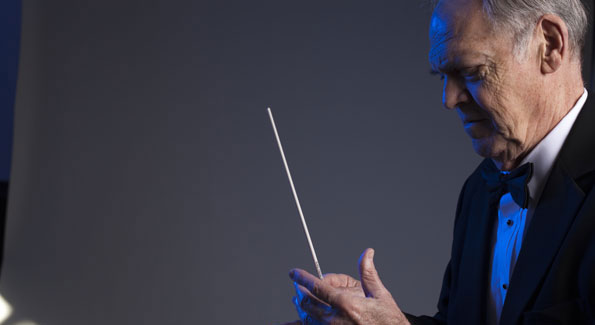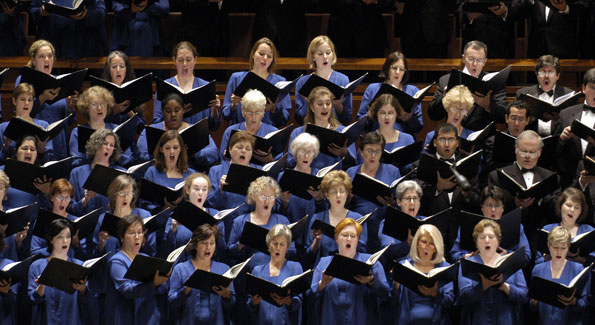Q&A with Choral Arts Society’s musical master, who leaves behind a storied legacy after 47 years.
What was your initial inspiration behind programming the Annual Holiday Gala concerts?
Norman Scribner: People think of singing at Christmastime because of the carols. How many people do you know who maybe won’t get to a classical music concert, but they’ll sing Christmas carols at Christmastime? It helps us with our revenue, too, because those concerts always sell very well.
Choral Arts has fostered remarkable ties with several embassies. Any collaborations with a particular embassy that stand out?
NS: They are all outstanding! Most recently, the Russian ambassador provided from his native land a full orchestra and a magnificent mezzo-soprano soloist. We have done a lot of Russian music because of Rostropovich’s years in Washington. For my last Christmas, to join up with the Russian embassy was just ideal.
Talk more about your relationship with the gala chairs and the support that have made the galas a rousing success.
NS: We have a board of directors that is very active in working on the Christmas gala and making it all happen. The programming function is mainly undertaken by me, and I generally coordinate and communicate with the embassy. It is very important that since they are lending their name to the event that they are happy with it.
What was it like to prepare for the historic performance of Bernstein’s Mass for the opening of the Kennedy Center?
NS: I got a call to prepare that chorus a couple months before the center opened. It was an all-professional chorus. For me personally, it was a watershed in my life because Leonard Bernstein is considered the greatest musician of the 20th century. I was very much a behind-the-scenes kind of guy in my relationship to with him, because the only function that I ever undertook with him was to prepare choruses, which included many performances with the Choral Arts Society.
What inspired you to begin presenting the annual Choral Arts MLK Tribute Concert?
NS: Choral Arts was three years old when Dr. King was killed. I sat glued to the television as they were giving live shots of 14th Street burning from top to bottom and the looting. It made me so anguished and sad. I just felt really distraught about it. It made a strong emotional impact on me. I believe that God loves everyone equally.
You have been on the frontier of solid music making with Choral Arts for 47 years. What will be the hardest thing about saying “goodbye”?
NS: My heart is just filled with gratitude for all the people who have made this thing possible. We have now identified and engaged our next music director Scott Tucker, who will start in the fall. He’s wonderful and I am so happy about that. I am sure that we have all the components of what is required to guarantee the continuation of something that has only had one music director.
With no rehearsals to attend or performances to prepare for, how will the Maestro spend all this free time?
NS: My wife Shirley and I are going to travel a bit in Europe after the French tour at the end of the summer. There are areas of music that I want to study. I have at least two ideas about a book I want to write. Artistically the most important thing would be that in my younger years I composed quite regularly. I suppose I would like to reexamine that to see if the muse is still with me.
Patrick D. McCoy is a freelance journalist, music director and radio host currently living in Washington, D. C., holding degrees in music from Virginia State University and the Shenandoah Conservatory.







